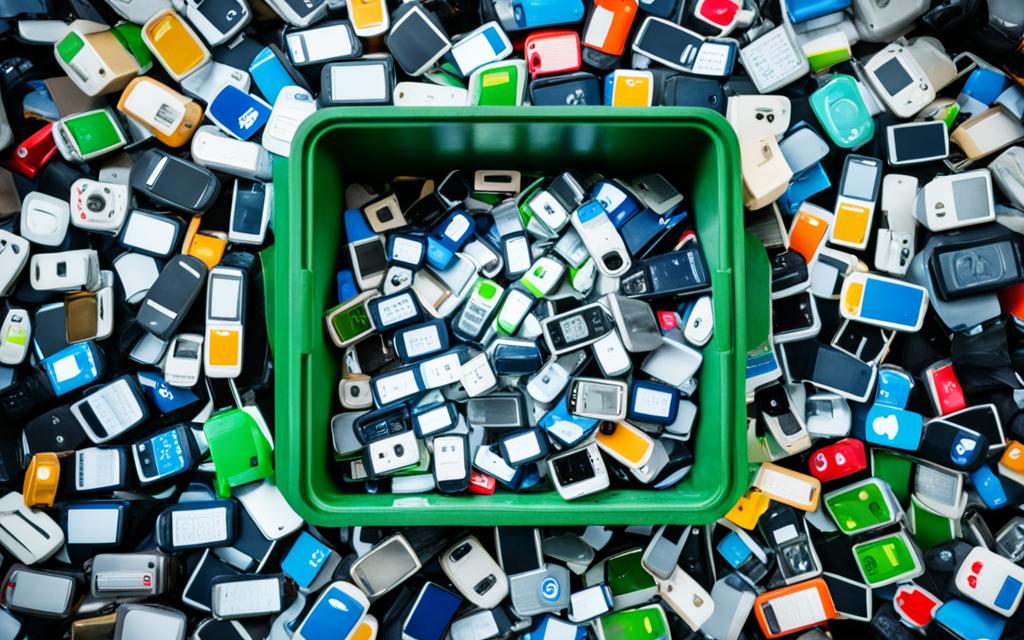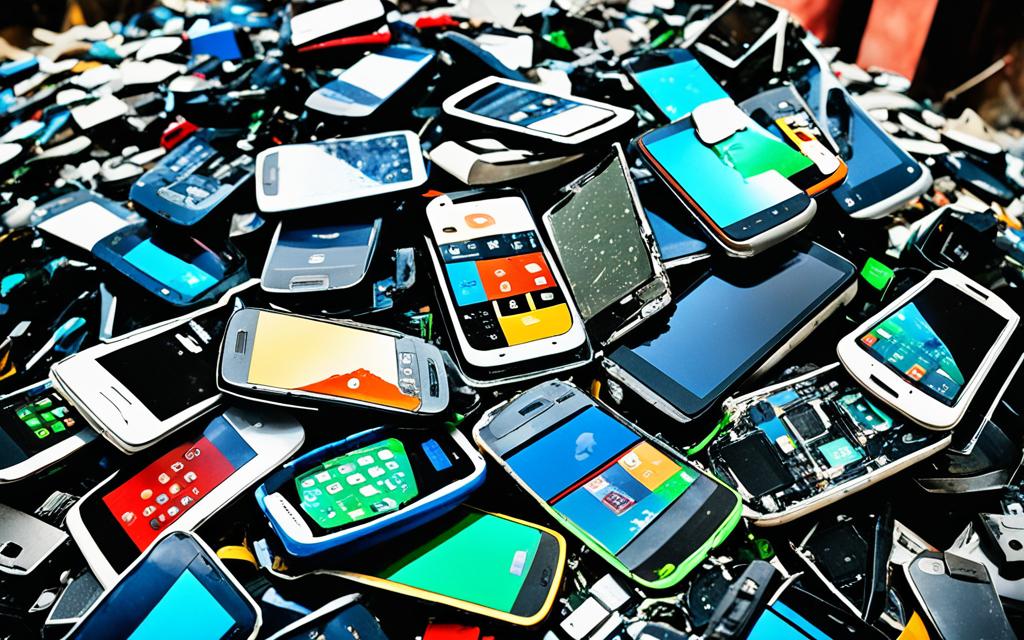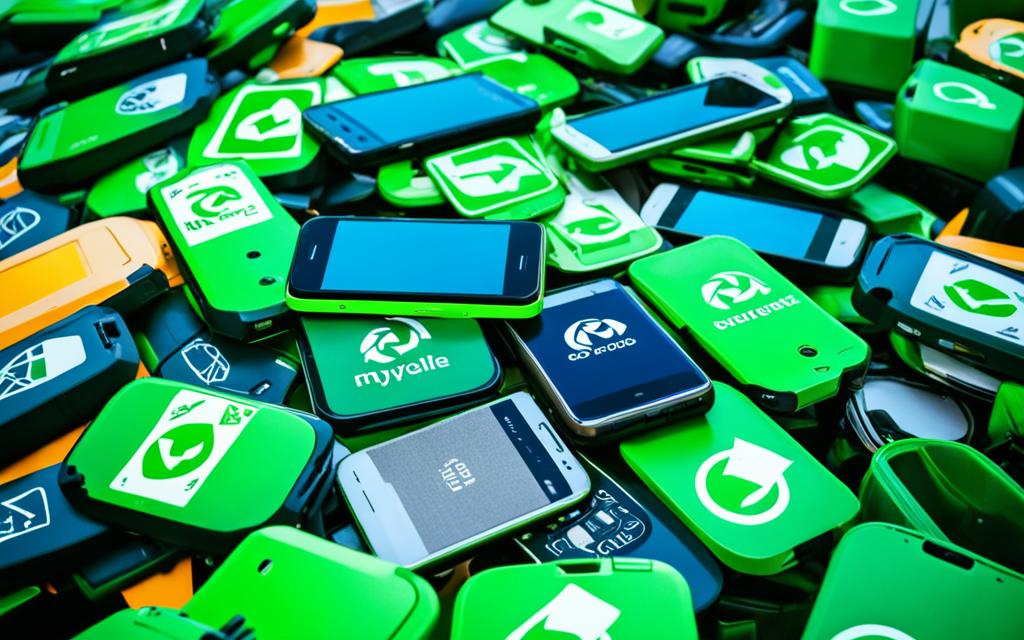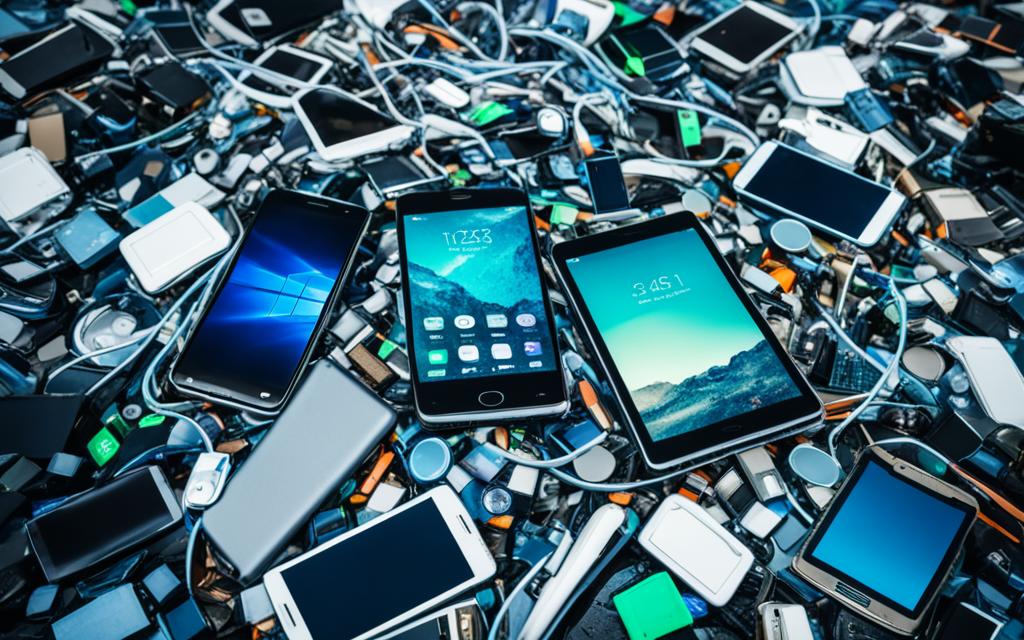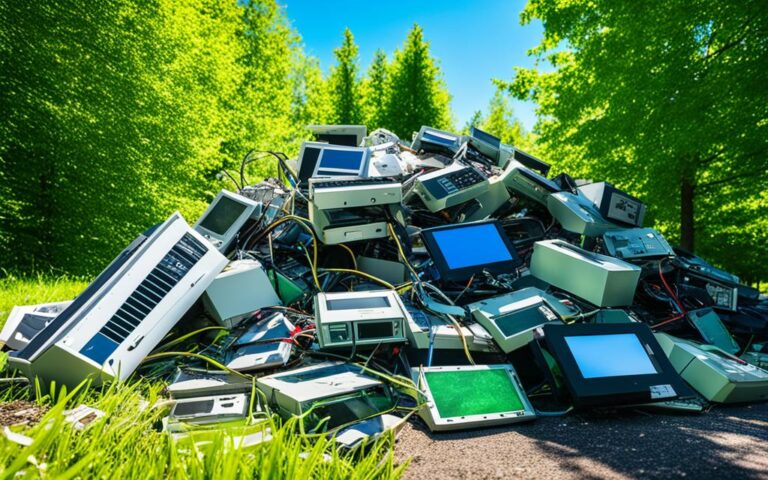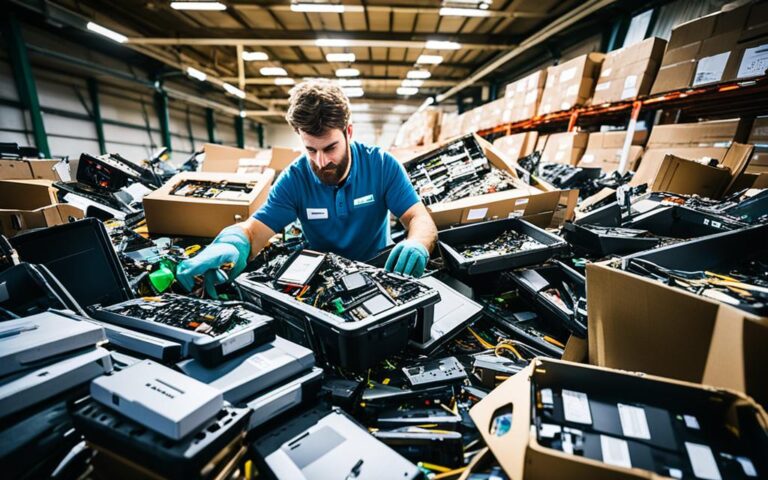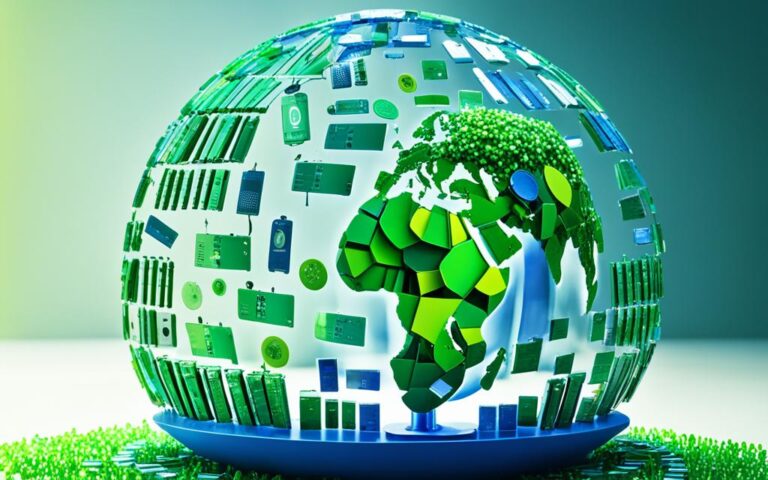The Role of Government in Promoting Phone and Tablet Recycling
The government plays a crucial role in promoting phone and tablet recycling to ensure the proper handling of electronic waste and protect the environment from its harmful effects. By implementing regulations, providing funding, and partnering with recycling organizations, the government aims to increase awareness, accessibility, and convenience of recycling programs for consumers.
Proper disposal of phones and tablets is essential to prevent them from ending up in landfills where they can leak toxic materials into the soil and water. Recycling these electronic devices not only safeguards the environment but also enables the recovery of valuable resources that can be reused in manufacturing new products.
Through its initiatives, the government ensures that consumers have easy access to recycling options, such as drop-off centers or collection events, where they can safely dispose of their old devices. By participating in these programs, you can contribute to a greener and more sustainable future while also complying with regulations that promote responsible e-waste management.
Join hands with the government in its efforts to create a circular economy by recycling your old phones and tablets. By doing so, you will not only protect the environment but also support initiatives that aim to reduce electronic waste and conserve valuable resources.
Government Regulations for Battery Recycling
The government has implemented strict regulations both at the federal and state levels to ensure the proper recycling and disposal of lithium-ion batteries, which are classified as hazardous materials. These regulations aim to safeguard the environment and prevent potential risks posed by improper handling and disposal of these batteries.
One of the key areas of regulation is the transportation of lithium batteries. The Department of Transportation has established specific rules to minimize the risk of fire accidents during transit. These regulations dictate the proper packaging, labeling, and handling procedures for lithium-ion batteries to ensure their safe transport.
Furthermore, the U.S. Mercury-Containing and Rechargeable Battery Act is an important federal regulation that requires manufacturers to label batteries clearly as recyclable and ensure they are easily accessible for consumers to recycle. This act encourages the adoption of sustainable practices and promotes responsible battery disposal.
At the state level, several states have their own laws that mandate battery recycling programs. For example, in California, the Department of Toxic Substances Control (DTSC) has implemented a comprehensive battery stewardship program, which requires battery manufacturers to develop and fund recycling efforts. Similar programs exist in other states such as Florida and Minnesota.
These state-specific regulations not only ensure the proper recycling of batteries but also promote awareness and education among consumers about the importance of responsibly disposing of lithium-ion batteries.
| Regulation | Requirements |
|---|---|
| Department of Transportation Regulations | Proper packaging, labeling, and handling procedures for the transportation of lithium batteries. |
| U.S. Mercury-Containing and Rechargeable Battery Act | Requires manufacturers to label batteries as recyclable and ensure easy accessibility for consumers to facilitate recycling. |
| State-specific Battery Recycling Laws | Mandates battery recycling programs in various states to promote responsible disposal and raise consumer awareness. |
These comprehensive government regulations provide the framework for the safe and responsible recycling of lithium-ion batteries. By adhering to these regulations, we can reduce the environmental impact of hazardous materials and contribute to a more sustainable future.
Government Funding for Battery Recycling Programs
In the pursuit of a greener future, the Biden-Harris administration has recognized the importance of battery recycling and allocated substantial funding to support research and development in this area. The U.S. Department of Energy has earmarked a staggering $192 million towards the production and recycling of lithium-ion batteries, which are widely used in electronic devices, electric vehicles, and renewable energy systems.
These funds are not solely dedicated to the technical aspects of recycling; there is also a focus on developing and marketing battery recycling programs that are both consumer-friendly and profitable. By making recycling more accessible and convenient for consumers, the government aims to meet the increasing demand for battery recycling and create a sustainable and circular economy.
The funding is not only vital for the efficient recycling of lithium-ion batteries but also drives further research and development in this field. Continued investment in battery recycling technologies will promote innovation, enhance efficiency, and address challenges posed by different battery chemistries and form factors. This research and development focus will accelerate the implementation of more advanced recycling methods, thereby minimizing waste and maximizing resource recovery.
This commitment to battery recycling funding demonstrates the government’s dedication to environmental sustainability and reducing our reliance on finite resources. By providing financial support to battery recycling initiatives, the government empowers both businesses and consumers to actively participate in the circular economy and contribute to a cleaner, healthier planet.
As the demand for lithium-ion batteries continues to grow, it is imperative that we prioritize their proper disposal and recycling. The government’s investment in battery recycling funding not only addresses the environmental impact of electronic waste but also supports the development of a more sustainable future.
The Environmental Benefits of Battery Recycling
Proper battery recycling offers significant environmental benefits, contributing to a more sustainable future. By recycling batteries, we can prevent fires and the release of toxic substances into the environment, safeguarding our planet and the wellbeing of all living beings.
According to Princeton University’s research, only 5% of lithium-ion batteries are currently recycled, indicating a substantial opportunity for improvement. By increasing battery recycling rates, we can significantly reduce the environmental impact of battery waste.
Recycling batteries also helps conserve valuable resources that are used in battery manufacturing, such as cobalt, lithium, manganese, and nickel. By recycling these materials, we can reduce the need for extracting new resources, minimizing habitat destruction and ecosystem disruption.
Furthermore, innovative recycling methods have the potential to reduce water consumption, emissions, and energy use associated with battery recycling. By adopting more sustainable practices, we can further decrease the environmental footprint of the recycling process and promote a greener future.
“Battery recycling not only prevents environmental pollution but also helps conserve valuable resources necessary for the manufacturing of batteries. By recycling batteries, we can reduce the burden on our planet and move towards a more sustainable and circular economy.”
To illustrate the environmental benefits of battery recycling, we can refer to the following table:
| Environmental Benefits of Battery Recycling | |
|---|---|
| Prevention of fires | Reduces the risk of fire accidents caused by improperly disposed batteries. |
| Reduction of toxic substances | Prevents the release of harmful chemicals into the environment, protecting ecosystems and human health. |
| Conservation of resources | Reduces the need for extracting valuable metals used in battery manufacturing, preserving natural resources. |
| Water consumption reduction | Adoption of innovative recycling methods can minimize water usage in the recycling process. |
| Emi ssions reduction |
Decreases greenhouse gas emissions associated with the production of new batteries. |
| Energy conservation | Reduces energy consumption required for the extraction and processing of raw materials. |
In conclusion, battery recycling provides a range of environmental benefits, from preventing fires and toxic pollution to conserving valuable resources and reducing water consumption, emissions, and energy use. Recycling batteries is paramount to creating a more sustainable and environmentally responsible future for generations to come. Let us all play our part in promoting battery recycling and embracing sustainable practices.
Responsible Disposal of Electronics and Rechargeable Batteries
In today’s world, it is essential for individuals to dispose of electronics and rechargeable batteries responsibly. The improper disposal of these items can have harmful effects on the environment, polluting the air, soil, and water. To prevent this, it is crucial to take the necessary steps to ensure their proper disposal.
Save Batteries, Save the Environment
When it comes to rechargeable batteries, it is recommended to save them in a container specifically designated for battery storage. This simple action can prevent leaks and minimize the risk of environmental contamination. By setting aside electronics and rechargeable batteries for proper disposal, you can play your part in protecting the environment.
Conclusion
The government plays a vital role in promoting phone and tablet recycling to create a sustainable future. Through regulations, funding, and partnerships, the government is committed to increasing awareness and accessibility to battery recycling programs. Proper battery recycling offers significant environmental benefits, including reducing the risk of fires and minimizing the extraction of valuable resources.
However, the responsibility doesn’t solely rest on the government. Individuals also have a crucial part to play in this endeavor. By responsibly disposing of their electronics and rechargeable batteries through available recycling programs, individuals can contribute to the efforts of building a greener and more sustainable future. Together, we can make a difference.
It is crucial to recognize that every small action counts. By taking the initiative to recycle our electronics and rechargeable batteries, we can help protect the environment from hazardous waste and conserve valuable resources. Let’s embrace the opportunity to participate in the recycling programs provided by retailers and certified ITAD providers, ensuring that electronic waste doesn’t end up in landfills.
By working hand in hand, the government and individuals can create a more sustainable future for generations to come. Let’s join forces and play our part in making the world a greener and better place. Together, we can ensure a brighter and more sustainable future for our planet.
FAQ
What is the role of the government in promoting phone and tablet recycling?
The government plays a crucial role in promoting phone and tablet recycling to ensure the proper handling of electronic waste and protect the environment from its harmful effects. Government regulations, funding, and partnerships with recycling organizations aim to increase awareness, accessibility, and convenience of recycling programs for consumers.
What regulations are in place for battery recycling?
The government has implemented regulations at both the federal and state levels to ensure the proper recycling and disposal of lithium-ion batteries, which are considered hazardous materials. The Department of Transportation has regulations for the transportation of lithium batteries to minimize the risk of fire accidents. The U.S. Mercury-Containing and Rechargeable Battery Act requires manufacturers to label batteries as recyclable and make it easy for consumers to recycle them. Several states, including California, Florida, and Minnesota, have their own laws that mandate battery recycling programs.
How is the government funding battery recycling programs?
The government, particularly the Biden-Harris administration, has allocated significant funding for battery recycling research and development. The U.S. Department of Energy has earmarked 2 million to support the production and recycling of lithium batteries. A portion of the funds is dedicated to developing and marketing battery recycling programs that are consumer-friendly and profitable. These initiatives aim to meet the increasing demand for battery recycling and create a sustainable and circular economy.
What are the environmental benefits of battery recycling?
Proper battery recycling has numerous environmental benefits. Recycling batteries helps prevent fires and the release of toxic substances into the environment. Princeton University’s research shows that only 5% of lithium-ion batteries are currently recycled, indicating a significant room for improvement. Recycling batteries also helps conserve valuable resources such as cobalt, lithium, manganese, and nickel, which are used in battery manufacturing. Additionally, innovative recycling methods can reduce water consumption, emissions, and energy use associated with battery recycling.
How should individuals dispose of electronics and rechargeable batteries responsibly?
It is essential for individuals to dispose of electronics and rechargeable batteries responsibly. Throwing them in the trash can harm the environment by polluting the air, soil, and water. Instead, consumers should save batteries in a container and set aside electronics for proper disposal. Many retailers, such as Best Buy and Staples, offer e-waste recycling programs where consumers can drop off their devices. ERI, a certified ITAD provider, provides secure transportation and recycling of rechargeable devices. Taking advantage of these recycling options helps prevent electronic waste from ending up in landfills and promotes the recovery of valuable materials.

